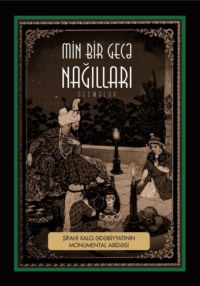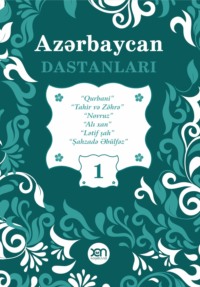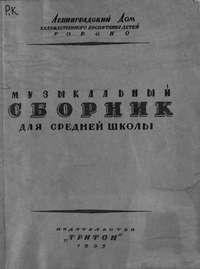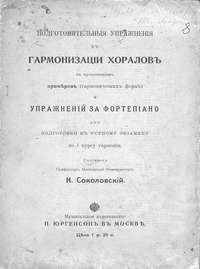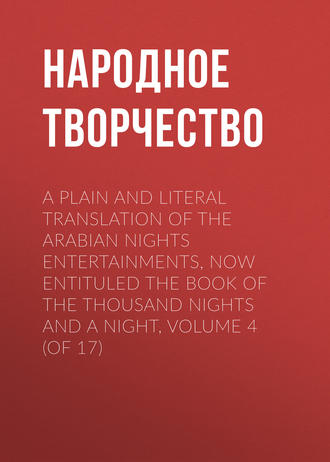 полная версия
полная версияA plain and literal translation of the Arabian nights entertainments, now entituled The Book of the Thousand Nights and a Night, Volume 4 (of 17)
TALE OF MA’AN THE SON OF ZAIDAH. 133
It is told of Ma’an bin Záidah that, being out one day a-chasing and a-hunting, he became athirst but his men had no water with them; and while thus suffering behold, three damsels met him bearing three skins of water; – And Shahrazad perceived the dawn of day and ceased to say her permitted say.
Now when it was the Two Hundred and Seventy-first Night,134She said, It hath reached me, O auspicious King, that three girls met him bearing three skins of water; so he begged drink of them, and they gave him to drink. Then he sought of his men somewhat to give the damsels but they had no money; so he presented to each girl ten golden-piled arrows from his quiver. Whereupon quoth one of them to her friend, “Well-a-day! These fashions pertain to none but Ma’an bin Zaidah! so let each one of us say somewhat of verse in his praise.” Then quoth the first: —
He heads his arrows with piles of gold, ✿ And while shooting his foes is his bounty doled:Affording the wounded a means of cure, ✿ And a sheet for the bider beneath the mould!And quoth the second: —
A warrior showing such open hand, ✿ His boons all friends and all foes enfold:The piles of his arrows of or are made, ✿ So that battle his bounty may not withhold!And quoth the third: —
From that liberal hand on his foes he rains ✿ Shafts aureate-headed and manifold:Wherewith the hurt shall chirurgeon pay, ✿ And for slain the shrouds round their corpses roll’d.135And there is also told a tale of
MA’AN SON OF ZAIDAH AND THE BADAWI
Now Ma’an bin Záidah went forth one day to the chase with his company, and they came upon a herd of gazelles; so they separated in pursuit and Ma’an was left alone to chase one of them. When he had made prize of it he alighted and slaughtered it; and as he was thus engaged, he espied a person136 coming forth out of the desert on an ass. So he remounted and riding up to the new-comer, saluted him and asked him, “Whence comest thou?” Quoth he, “I come from the land of Kuzá’ah, where we have had a two years’ dearth; but this year it was a season of plenty and I sowed early cucumbers.137 They came up before their time, so I gathered what seemed the best of them and set out to carry them to the Emir Ma’an bin Zaidah, because of his well-known beneficence and notorious munificence.” Asked Ma’an, “How much dost thou hope to get of him?”; and the Badawi answered, “A thousand dinars.” Quoth the Emir, “What if he say this is too much?” Said the Badawi, “Then I will ask five hundred dinars.” “And if he say, Too much?” “Then three hundred!” “And if he say yet, Too much?” “Then two hundred!” “And if he say yet, Too much?” “Then one hundred!” “And if he say yet, Too much?” “Then, fifty!” “And if he say yet, Too much?” “Then thirty!” “And if he say still, Too much?” asked Ma’an bin Zaidah. Answered the Badawi, “I will make my ass set his four feet in his Honour’s home138 and return to my people, disappointed and empty-handed.” So Ma’an laughed at him and urged his steed till he came up with his suite and returned to his place, when he said to his chamberlain, “An there come to thee a man with cucumbers and riding on an ass admit him to me.” Presently up came the Badawi and was admitted to Ma’an’s presence; but knew not the Emir for the man he had met in the desert, by reason of the gravity and majesty of his semblance and the multitude of his eunuchs and attendants, for he was seated on his chair of estate with his officers ranged in lines before him and on either side. So he saluted him and Ma’an said to him “What bringeth thee, O brother of the Arabs?” Answered the Badawi, “I hoped in the Emir, and have brought him curly cucumbers out of season.” Asked Ma’an, “And how much dost thou expect of us?” “A thousand dinars,” answered the Badawi. “This is far too much,” quoth Ma’an. Quoth he, “Five hundred.” “Too much!” “Then three hundred.” “Too much!” “Two hundred.” “Too much!” “One hundred.” “Too much!” “Fifty.” “Too much!” At last the Badawi came down to thirty dinars; but Ma’an still replied, “Too much!” So the Badawi cried, “By Allah, the man who met me in the desert brought me bad luck! But I will not go lower than thirty dinars.” The Emir laughed and said nothing; whereupon the wild Arab knew that it was he whom he had met and said, “O my lord, except thou bring the thirty dinars, see ye, there is the ass tied ready at the door and here sits Ma’an, his honour, at home.” So Ma’an laughed, till he fell on his back; and, calling his steward, said to him, “Give him a thousand dinars and five hundred and three hundred and two hundred and one hundred and fifty and thirty; and leave the ass tied up where he is.” So the Arab to his amazement, received two thousand one hundred and eighty dinars, and Allah have mercy on them both and on all generous men! And I have also heard, O auspicious King, a tale of
THE CITY OF LABTAYT. 139
There was once a royal city in the land of Roum, called the City of Labtayt wherein stood a tower which was always shut. And whenever a King died and another King of the Greeks took the Kingship after him, he set on the tower a new and strong lock, till there were four-and-twenty locks upon the gate, according to the number of the Kings. After this time, there came to the throne a man who was not of the old royal house, and he had a mind to open these locks, that he might see what was within the tower. The grandees of his kingdom forbade him from this and pressed him to desist and reproved him and blamed him; but he persisted saying, “Needs must this place be opened.” Then they offered him all that their hands possessed of monies and treasures and things of price, if he would but refrain; still he would not be baulked – And Shahrazad perceived the dawn of day and ceased saying her permitted say.
Now when it was the Two Hundred and Seventy-second Night,She said, It hath reached me, O auspicious King, that the grandees offered that King all their hands possessed of monies and treasures if he would but refrain; still he would not be baulked and said, “There is no help for it but I open this tower.” So he pulled off the locks and entering, found within the tower figures of Arabs on their horses and camels, habited in turbands140 hanging down at the ends, with swords in baldrick-belts thrown over their shoulders and bearing long lances in their hands. He found there also a scroll which he greedily took and read, and these words were written therein: – “Whenas this door is opened will conquer this country a raid of the Arabs, after the likeness of the figures here depicted; wherefore beware, and again beware of opening it.” Now this city was in Andalusia; and that very year Tárik ibn Ziyád conquered it, during the Caliphate of Al-Walíd son of Abd al-Malik141 of the sons of Umayyah; and slew this King after the sorriest fashion and sacked the city and made prisoners of the women and boys therein and got great loot. Moreover, he found there immense treasures; amongst the rest more than an hundred and seventy crowns of pearls and jacinths and other gems of price; and he found a saloon, wherein horsemen might throw the spears, full of vessels of gold and silver, such as no description can comprise. Moreover, he found there the table of food for the Prophet of Allah, Solomon son of David (peace with both of them!), which is extant even now in a city of the Greeks; it is told that it was of grass-green emerald with vessels of gold and platters of jasper. Likewise he found the Psalms written in the old Ionian142 character on leaves of gold bezel’d with jewels; together with a book setting forth the properties of stones and herbs and minerals, as well as the use of characts and talismans and the canons of the art of alchymy; and he found a third volume which treated of the art of cutting and setting rubies and other precious stones and of the preparation of poisons and theriacks. There found he also a mappa mundi figuring the earth and the seas and the different cities and countries and villages of the world; and he found a vast saloon full of hermetic powder, one drachm of which elixir would turn a thousand drachms of silver into fine gold; likewise a marvellous mirror, great and round, of mixed metals, which had been made for Solomon, son of David (on the twain be peace!) wherein whoso looked might see the counterfeit presentment of the seven climates of the world; and he beheld a chamber full of Brahmini143 jacinths for which no words can suffice. So he despatched all these things to Walid bin Abd al-Malik, and the Arabs spread all over the cities of Andalusia which is one of the finest of lands. This is the end of the story of the City of Labtayt. And a tale is also told of
THE CALIPH HISHAM AND THE ARAB YOUTH
The Caliph Hishám bin Abd al-Malik bin Marwan, was hunting one day, when he sighted an antelope and pursued it with his dogs. As he was following the quarry, he saw an Arab youth pasturing sheep and said to him, “Ho boy, up and after yonder antelope, for it escapeth me!” The youth raised his head to him and replied, “O ignorant of what to the deserving is due, thou lookest on me with disdain and speakest to me with contempt; thy speaking is that of a tyrant true and thy doing what an ass would do.” Quoth Hisham, “Woe to thee, dost thou not know me?” Rejoined the youth, “Verily thine unmannerliness hath made thee known to me, in that thou spakest to me, without beginning by the salutation.”144 Repeated the Caliph, “Fie upon thee! I am Hisham bin Abd al-Malik.” “May Allah not favour thy dwelling-place,” replied the Arab, “nor guard thine abiding place! How many are thy words and how few thy generous deeds!” Hardly had he ended speaking, when up came the troop from all sides and surrounded him as the white encircleth the black of the eye, all and each saying, “Peace be with thee, O Commander of the Faithful!” Quoth Hisham, “Cut short this talk and seize me yonder boy.” So they laid hands on him; and when he saw the multitude of Chamberlains and Wazirs and Lords of State, he was in nowise concerned and questioned not of them, but let his chin drop on his breast and looked where his feet fell, till they brought him to the Caliph145 when he stood before him, with head bowed groundwards and saluted him not and spoke him not. So one of the eunuchs said to him, “O dog of the Arabs, what hindereth thy saluting the Commander of the Faithful?” The youth turned to him angrily and replied, “O packsaddle of an ass, it was the length of the way that hindered me from this and the steepness of the steps and the profuseness of my sweat.” Then said Hisham (and indeed he was exceeding wroth), “O boy, verily thy days are come to their latest hour; thy hope is gone from thee and thy life is past out of thee.” He answered, “By Allah, O Hisham, verily an my life-term be prolonged and Fate ordain not its cutting short, thy words irk me not, be they long or short.” Then said the Chief Chamberlain to him, “Doth it befit thy degree, O vilest of the Arabs, to bandy words with the Commander of the Faithful?” He answered promptly, “Mayest thou meet with adversity and may woe and wailing never leave thee! Hast thou not heard the saying of Almighty Allah?: – One day, every soul shall come to defend itself.”146 Hereupon Hisham rose, in great wrath, and said, “O headsman, bring me the head of this lad; for indeed he exceedeth in talk, such as passeth conception.” So the sworder took him and, making him kneel on the carpet of blood, drew his sword above him and said to the Caliph, “O Commander of the Faithful, this thy slave is misguided and is on the way to his grave; shall I smite off his head and be quit of his blood?” “Yes,” replied Hisham. He repeated his question and the Caliph again answered in the affirmative. Then he asked leave a third time; and the youth, knowing that, if the Caliph assented yet once more, it would be the signal of his death, laughed till his wisdom-teeth showed; whereupon Hisham’s wrath redoubled and he said to him, “O boy, meseems thou art mad; seest thou not that thou art about to depart the world? Why then dost thou laugh in mockery of thyself?” He replied, “O Commander of the Faithful, if a larger life-term befel me, none can hurt me, great or small; but I have bethought me of some couplets, which do thou hear, for my death cannot escape thee.” Quoth Hisham, “Say on and be brief;” so the Arab repeated these couplets: —
It happed one day a hawk pounced on a bird, ✿ A wildling sparrow driven by destiny;And held in pounces spake the sparrow thus, ✿ E’en as the hawk rose ready home to hie: —“Scant flesh have I to fill the maw of thee ✿ And for thy lordly food poor morsel I.”Then smiled the hawk in flattered vanity ✿ And pride, so set the sparrow free to fly.At this Hisham smiled and said, “By the truth of my kinship to the Apostle of Allah (whom Allah bless and keep!), had he spoken this speech at first and asked for aught except the Caliphate, verily I would have given it to him. Stuff his mouth with jewels,147 O eunuch and entreat him courteously;” so they did as he bade them and the Arab went his way. And amongst pleasant tales is that of
IBRAHIM BIN AL-MAHDI AND THE BARBER-SURGEON
They relate that Ibrahím, son of al-Mahdí,148 brother of Harun al-Rashid, when the Caliphate devolved to Al-Maamun, the son of his brother Harun, refused to acknowledge his nephew and betook himself to Rayy149; where he claimed the throne and abode thus a year and eleven months and twelve days. Meanwhile his nephew, Al-Maamun, awaited his return to allegiance and his accepting a dependent position till, at last, despairing of this, he mounted with his horsemen and footmen and repaired to Rayy in quest of him. Now when the news came to Ibrahim, he found nothing for it but to flee to Baghdad and hide there, fearing for his life; and Maamun set a price of an hundred thousand gold pieces upon his head, to be paid to whoso might betray him. (Quoth Ibrahim) “When I heard of this price I feared for my head” – And Shahrazad perceived the dawn of day and ceased to say her permitted say.
Now when it was the Two Hundred and Seventy-third Night,She said, It hath reached me, O auspicious King, that Ibrahim continued: – Now when I heard of this price I feared for my head and knew not what to do: so I went forth of my house in disguise at midday, knowing not whither I should go. Presently I entered a broad street which was no thoroughfare and said in my mind, “Verily, we are Allah’s and unto Him we are returning! I have exposed my life to destruction. If I retrace my steps, I shall arouse suspicion.” Then, being still in disguise I espied, at the upper end of the street, a negro-slave standing at his door; so I went up to him and said to him, “Hast thou a place where I may abide for an hour of the day?” “Yes,” answered he, and opening the door admitted me into a decent house, furnished with carpets and mats and cushions of leather. Then he shut the door on me and went away; and I misdoubted me he had heard of the reward offered for me, and said to myself, “He hath gone to inform against me.” But, as I sat pondering my case and boiling like cauldron over fire, behold, my host came back, accompanied by a porter loaded with bread and meat and new cooking-pots and gear and a new jar and new gugglets and other needfuls. He made the porter set them down and, dismissing him, said to me, “I offer my life for thy ransom! I am a barber-surgeon, and I know it would disgust thee to eat with me, because of the way in which I get my livelihood;150 so do thou shift for thyself and do what thou please with these things whereon no hand hath fallen.” (Quoth Ibrahim), Now I was in sore need of food so I cooked me a pot of meat whose like I remember not ever to have eaten; and, when I had satisfied my want, he said to me, “O my lord, Allah make me thy ransom! Art thou for wine?; for indeed it gladdeneth the soul and doeth away care.” “I have no dislike to it,” replied I, being desirous of the barber’s company; so he brought me new flagons of glass which no hand had touched and a jar of excellent wine, and said to me, “Strain for thyself, to thy liking;” whereupon I cleared the wine and mixed me a most delectable draught. Then he brought me a new cup and fruits and flowers in new vessels of earthenware; after which he said to me, “Wilt thou give me leave to sit apart and drink of my own wine by myself, of my joy in thee and for thee?” “Do so,” answered I. So I drank and he drank till the wine began to take effect upon us, when the barber rose and, going to a closet, took out a lute of polished wood and said to me, “O my lord, it is not for the like of me to ask the like of thee to sing, but it behoveth thine exceeding generosity to render my respect its due; so, if thou see fit to honour thy slave, thine is the high decision.” Quoth I (and indeed I thought not that he knew me), “How knowest thou that I excel in song?” He replied, “Glory be to Allah, our lord is too well renowned for that! Thou art my lord Ibrahim, son of Al-Mahdi, our Caliph of yesterday, he on whose head Al-Maamun hath set a price of an hundred thousand dinars to be paid to thy betrayer: but thou art in safety with me.” (Quoth Ibrahim), When I heard him say this, he was magnified in my eyes and his loyalty and noble nature were certified to me; so I complied with his wish and took the lute and tuned it, and sang. Then I bethought me of my severance from my children and my family and I began to say: —
Belike Who Yúsuf to his kin restored ✿ And honoured him in goal, a captive wight;May grant our prayer to reunite our lots; ✿ For Allah, Lord of Worlds, hath all of might.When the barber heard this, exceeding joy took possession of him and he was of great good cheer; for it is said that when Ibrahim’s neighbours heard him only sing out, “Ho, boy, saddle the mule!” they were filled with delight. Then, being overborne by mirth, he said to me, “O my lord, wilt thou give me leave to say what is come to my mind, albeit I am not of the folk of this craft?” I answered, “Do so; this is of thy great courtesy and kindness.” So he took the lute and sang these verses: —
To our beloveds we moaned our length of night; ✿ Quoth they, “How short the nights that us benight!”‘Tis for that sleep like hood enveils their eyes ✿ Right soon, but from our eyes is fair of flight:When night falls, dread and drear to those who love, ✿ We mourn; they joy to see departing light:Had they but dree’d the weird, the bitter dole ✿ We dree, their beds like ours had bred them blight.(Quoth Ibrahim), So I said to him, “By Allah, thou hast shown me a kindness, O my friend, and hast done away from me the pangs of sorrow. Let me hear more trifles of thy fashion.” So he sang these couplets: —
When man keeps honour bright without a stain, ✿ Fair sits whatever robe to robe he’s fain!She jeered at me because so few we are; ✿ Quoth I: – “There’s ever dearth of noble men!”Naught irks us we are few, while neighbour tribes ✿ Count many; neighbours oft are base-born strain:We are a clan which holds not Death reproach, ✿ Which A’mir and Samúl151 hold illest bane:Leads us our love of death to fated end; ✿ They hate that ending and delay would gain:We to our neighbours’ speech aye give the lie; ✿ But when we speak none dare give lie again.(Quoth Ibrahim), When I heard these lines, I was filled with huge delight and marvelled with exceeding marvel. Then I slept and awoke not till past nightfall, when I washed my face, with a mind full of the high worth of this barber-surgeon and his passing courtesy; after which I wakened him and, taking out a purse I had by me containing a number of gold pieces, threw it to him, saying, “I commend thee to Allah, for I am about to go forth from thee, and pray thee to expend what is in this purse on thine requirements; and thou shalt have an abounding reward of me, when I am quit of my fear.” (Quoth Ibrahim), But he returned the bag to me, saying, “O my lord, paupers like myself are of no value in thine eyes; but how, with due respect to my own generosity, can I take a price for the boon which fortune hath vouchsafed me of thy favour and thy visit to my poor abode? Nay, if thou repeat thy words and throw the purse to me again I will slay myself.” So I put in my sleeve152 the purse whose weight was irksome to me. – And Shahrazad perceived the dawn of day and ceased saying her permitted say.
Now when it was the Two Hundred and Seventy-fourth Night,She said, It hath reached me, O auspicious King, that Ibrahim son of Al-Mahdi continued: – So I put in my sleeve the purse whose weight was irksome to me; and turned to depart, but when I came to the house-door he said, “O my lord, of a truth this is a safer hiding-place for thee than any other, and thy keep is no burden to me; so do thou abide with me, till Allah be pleased to grant thee relief.” Accordingly, I turned back, saying, “On condition that thou spend of the money in this purse.” He made me think that he consented to this arrangement, and I abode with him some days in the utmost comfort; but, perceiving that he spent none of the contents of the purse, I revolted at the idea of abiding at his charge and thought it shame to be a burthen on him; so I left the house disguised in women’s apparel, donning short yellow walking-boots153 and veil. Now as soon as I found myself in the street, I was seized with excessive fear, and going to pass the bridge behold, I came to a place sprinkled with water,154 where a trooper, who had been in my service, looked at me and knowing me, cried out, saying, “This is he whom Al-Maamun wanteth.” Then he laid hold of me but the love of sweet life lent me strength and I gave him and his horse a push which threw them down in that slippery place, so that he became an example to those who will take example; and the folk hastened to him. Meanwhile, I hurried my pace over the bridge and entered a main street, where I saw the door of a house open and a woman standing upon the threshold. So I said to her, “O my lady, have pity on me and save my life; for I am a man in fear.” Quoth she, “Enter and welcome;” and carried me into an upper dining-room, where she spread me a bed and brought me food, saying, “Calm thy fear, for not a soul shall know of thee.” As she spoke, lo! there came a loud knocking at the door; so she went and opened, and suddenly, my friend, whom I had thrown down on the bridge, appeared with his head bound up, the blood running down upon his clothes and without his horse. She asked, “O so and so, what accident hath befallen thee?”; and he answered, “I made prize of the young man whom the Caliph seeketh and he escaped from me;” whereupon he told her the whole story. So she brought out tinder155 and, putting it into a piece of rag bandaged his head; after which she spread him a bed and he lay sick. Then she came up to me and said, “Methinks thou art the man in question?” “Even so,” answered I, and she said, “Fear not: no harm shall befal thee,” and redoubled in kindness to me. So I tarried with her three days, at the end of which time she said to me, “I am in fear for thee, lest yonder man happen upon thee and betray thee to what thou dreadest; so save thyself by flight.” I besought her to let me stay till nightfall, and she said, “There is no harm in that.” So, when the night came, I put on my woman’s gear and betook me to the house of a freed-woman who had once been our slave. When she saw me she wept and made a show of affliction and praised Almighty Allah for my safety. Then she went forth, as if she would go to market intent on hospitable thoughts, and I fancied all was right; but, ere long, suddenly I espied Ibrahim al-Mosili156 making for the house amongst his troopers and servants, and led by a woman on foot; and looking narrowly at her behold, she was the freed-woman, the mistress of the house, wherein I had taken refuge. So she delivered me into their hands, and I saw death face to face. They carried me, in my woman’s attire, to Al-Maamun who called a general council and had me brought before him. When I entered I saluted him by the title of Caliph, saying, “Peace be on thee, O Commander of the Faithful!” and he replied, “Allah give thee neither peace nor long life.” I rejoined, “According to thy good pleasure, O Commander of the Faithful!; it is for the claimant of blood-revenge157 to decree punishment or pardon; but mercy is nigher to piety; and Allah hath set thy pardon above all other pardon, even as He made my sin to excel all other sin. So, if thou punish, it is of thine equity, and if thou pardon, it is of thy bounty.” And I repeated these couplets: —


